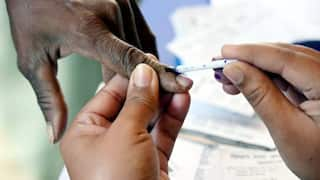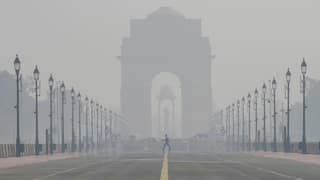Explained: Who Are The Popular Front of India? Why NIA Raided Their Offices?
PFI has been under the radar of security agencies for its role in violent protests against the CAA, Delhi riots, alleged forced conversions. In this article, we explore the origins of PFI.

Kerala-based controversial outfit Popular Front of India (PFI) is back in the news after the National Investigation Agency (NIA) conducted searches at the residences and offices of PFI workers across 15 states and arrested over 100 people for allegedly funding terrorism and supporting terror activities in the country.
The PFI's reach can be gauged by the fact that the raids conducted by the NIA were spread across 93 locations of 15 states that included Kerala, Tamil Nadu, Karnataka, Andhra Pradesh, Telangana, Uttar Pradesh, Rajasthan, Delhi, Assam, Madhya Pradesh, Maharashtra, Goa, West Bengal, Bihar and Manipur.
While Thursday's operation been termed as the "largest ever" investigation process by the NIA, PFI has been under the radar of security agencies for its role in violent protests in different parts of the country against the Citizenship (Amendment) Act, 2020 Delhi riots, alleged forced conversions and radicalisation of Muslim youths.
So, who are the Popular Front of India? When was it formed? What activities they have been involved with? We explain all facts on PFI in this article.
Who Are Popular Front of India (PFI)?
The Popular Front of India is an offspring of the National Development Front (NDF) that was formed in 1994, two years after the demolition of the Babri Masjid and subsequent riots in 1993.
The NDF was formed in Kerala to protect the interests of the Muslim community in the state.
In November 2006, the NDF merged with the Karnataka Forum for Dignity and the Manitha Neethi Pasarai in Tamil Nadu to form the Popular Front of India. It was founded by former leaders of the banned outfit Students Islamic Movement of India (SIMI).
The formation of the PFI was officially announced in 2007 at a rally in Bengaluru.
The PFI is not a political party and has projected itself as an organisation that fights for the rights of minorities, Dalits, and marginalised communities.
In 2009, PFI launched its political arm -- the Social Democratic Party of India -- to fight "for the advancement and uniform development of all the citizenry, including Muslims, Dalits, Backward Classes and Adivasis".
It was headed by E Abubacker, who was the Kerala zone president of Students Islamic Movement of India (SIMI) between 1982-84. The Indian government banned SIMI in 2001, shortly after the 9/11 attacks.
In 2009, PFI's student wing, the Campus Front of India (CFI), was also founded.
In Which States Does PFI Has Its Presence?
The organisation established its headquarters in Kozhikode, which was later changed to Delhi. Apart from its political arm and student wing, PFI has allied organisations like National Women's Front, an NGO called Rehab India Foundation and a think tank called Empower India Foundation.
Through these allied organisation, PFI now has presence in over two dozen states and union territories, including Kerala, Karnataka, Tamil Nadu, Uttar Pradesh, Delhi, Gujarat, Rajasthan, Maharashtra, West Bengal, Assam and Manipur.
According to law-enforcement agencies, the PFI has over 50,000 members and a large number of sympathisers in Kerala, according to a report in PTI.
The Many Controversies Of Popular Front Of India
After its birth in 2006, PFI has been plagued by several controversies and there has been various allegations of inciting violence and propagating extremism.
One of the earliest controversies that came to light was when PFI activists chopped off the right hand of a Kerala college professor, TJ Joseph, in 2010 for allegedly insulting Prophet Mohammed through a question paper he had set.
The outfit has also been blamed for perpetrating violence during various protests against the BJP government, particularly during the agitatoins against the Citizenship (Amendment) Act (CAA).
PFI also came under the scrutiny of various agencies in connection with the alleged "love jihad" incidents in Kerala, forced conversion of people belonging to other faiths and disapperance of some people from the state to join the Islamic State in Afghanistan and Syria.
The PFI was also accused of being involved in violence that had erupted during last year's 'Ram Navami' celebrations in Goa, Gujarat, Rajasthan, Madhya Pradesh, Jharkhand and West Bengal.
Several activists of PFI were also recently arrested for killings of RSS-BJP leaders in Kerala.
What Action Has The Government Taken Against PFI?
In 2021, Solicitor General Tushar Mehta had submitted before the Supreme Court that the Centre was in the process of banning the PFI. PFI has already been declared outlawed in several states, including Jharkhand.
In January 2018, the then union minister of state for home Kiren Rijiju had said the ministry was considering to ban the PFI under the stringent Unlawful Activities (Prevention) Act.
Following the anti-CAA protests and subsequent violence in December 2019, the Uttar Pradesh government had also recommended to the Centre to declare the PFI a banned organisation.




























